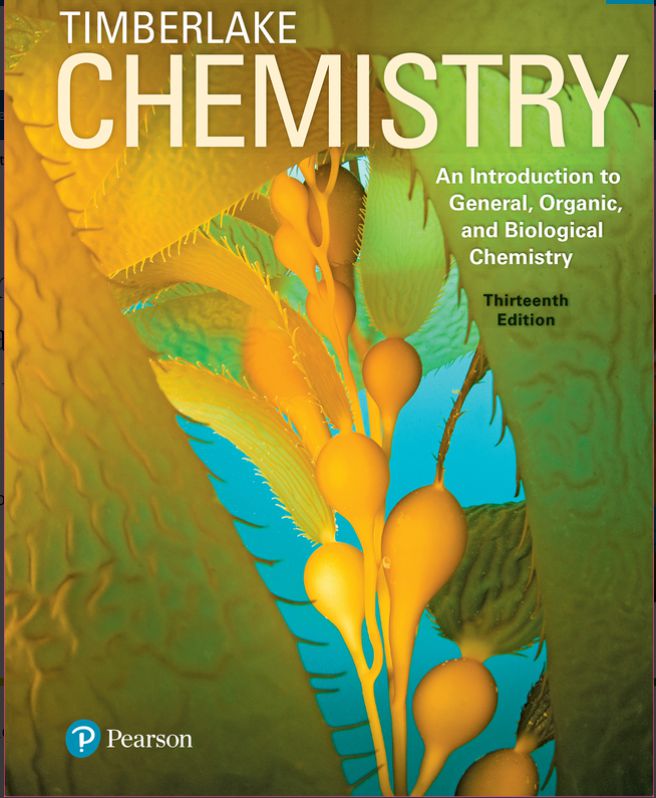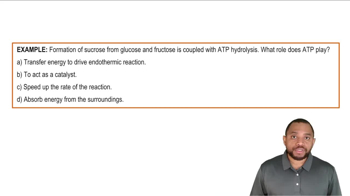Textbook Question
Identify each of the following as an oxidation or a reduction:
c. Cr3+(aq) + 3e– → Cr(s)
955
views

 Verified step by step guidance
Verified step by step guidance



Identify each of the following as an oxidation or a reduction:
c. Cr3+(aq) + 3e– → Cr(s)
In the mitochondria of human cells, energy is provided by the oxidation and reduction reactions of the iron ions in the cytochromes in electron transport. Identify each of the following as an oxidation or a reduction:
a. Fe3+ + e– → Fe2+
The chemical reaction of hydrogen with oxygen produces water.
2 H2(g) + O2(g) → 2 H2O(g)
c. How many moles of H2O form when 2.5 moles of O2 reacts?
Draw an energy diagram for an exothermic reaction.
What is measured by the heat of reaction?
Classify each of the following as exothermic or endothermic:
b. The energy level of the products is higher than that of the reactants.